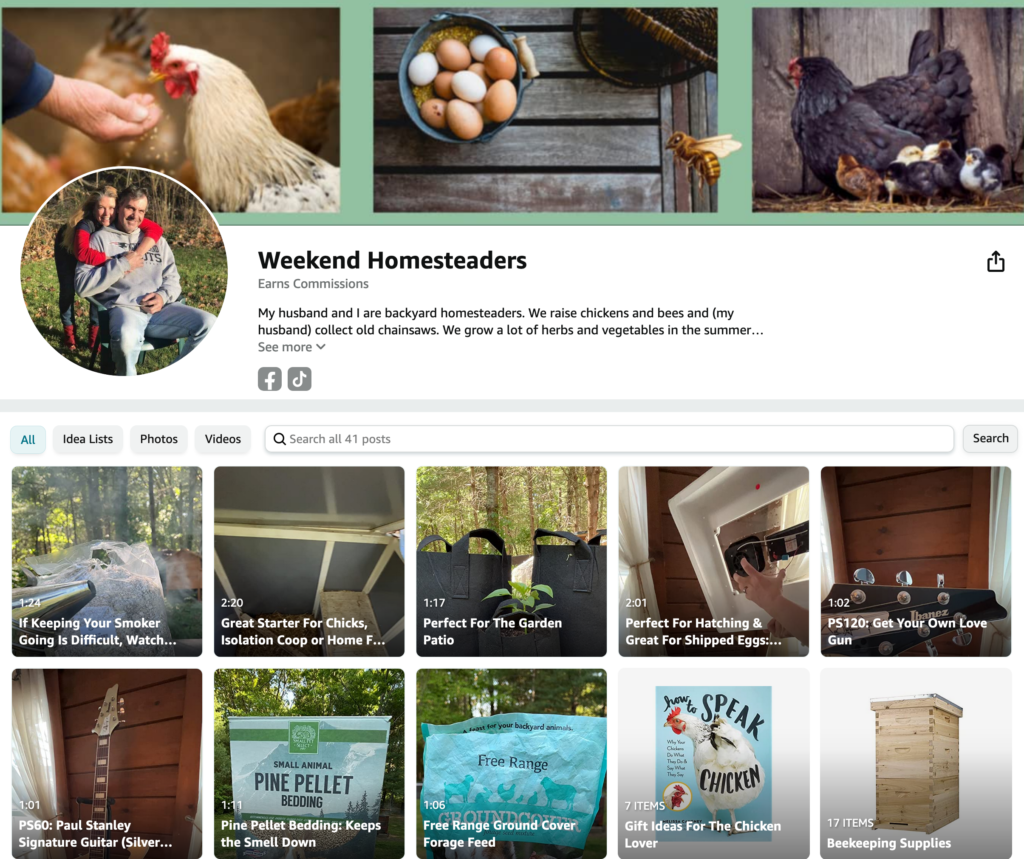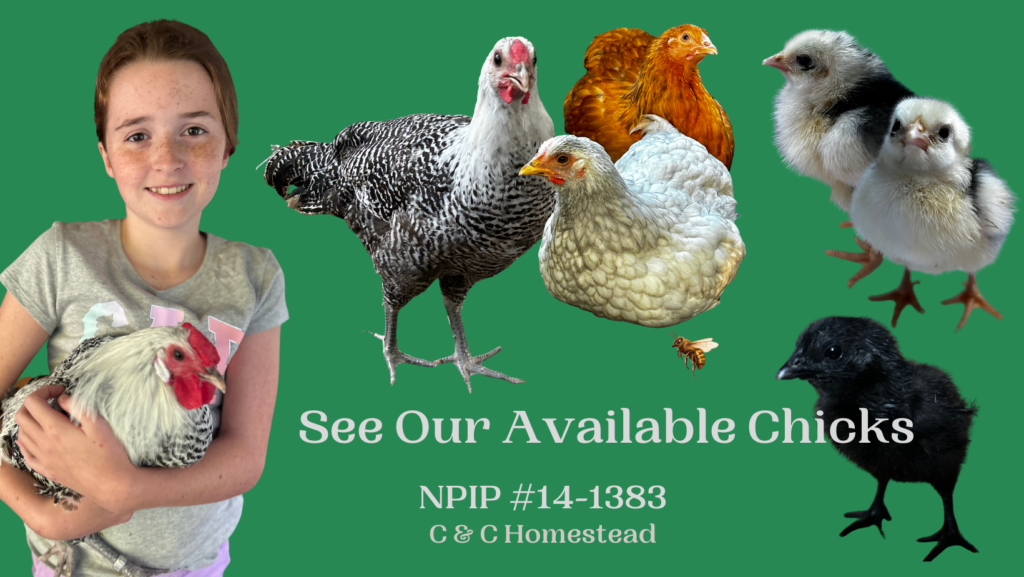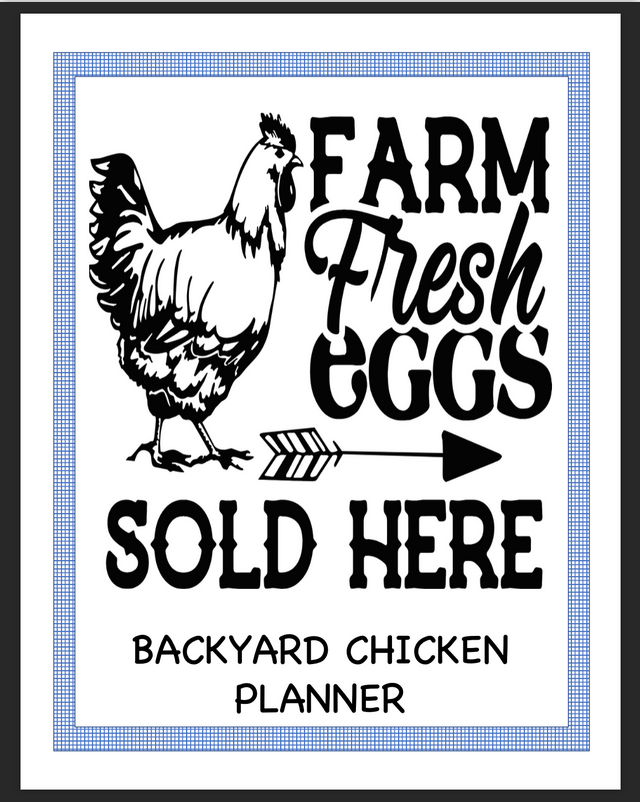Balancing Corporate & Homesteading Lifestyles
Biosecurity Checklist for a Marek’s-Positive Flock
Here’s a practical, easy-to-follow checklist to help you manage a Marek’s-positive flock. This checklist breaks down daily, weekly, and seasonal tasks into actionable steps you can follow and check off.
Daily Biosecurity Checklist
- Fresh Water:
- Empty all waterers and scrub with warm, soapy water.
- Rinse thoroughly and refill with clean, fresh water.
- Collect Eggs:
- Gather eggs at least twice daily to reduce contamination.
- Wash hands or wear gloves when handling eggs.
- Clean High-Traffic Areas:
- Scoop visible droppings from perches, nesting boxes, and walkways.
- Keep the areas around feeders and waterers clean.
- Sweep Feather Dust:
- Lightly mist feather dust with water before sweeping to prevent it from becoming airborne.
- Dispose of dust and feathers in a sealed bag.
- Wear Protective Gear:
- Change into coop-only footwear and clothing before entering the flock area.
- Wash hands thoroughly before and after handling birds.
- Monitor Flock Health:
- Check for signs of paralysis, weight loss, drooping wings, cloudy eyes, or lethargy.
- Isolate symptomatic birds immediately.
- Quarantine Sick Birds:
- Move any symptomatic birds to a separate area (quarantine zone).
- Disinfect tools and equipment used in the quarantine zone after every use.
Weekly Biosecurity Checklist
- Change Coop Bedding:
- Remove all soiled bedding from the coop and nesting boxes.
- Replace with clean, dry bedding (e.g., pine shavings or straw).
- Dispose of old bedding in sealed bags or compost away from the flock.
- Clean Feeders and Waterers:
- Soak feeders and waterers in a disinfectant solution (e.g., 1:10 bleach and water).
- Scrub, rinse, and allow them to air dry completely before refilling.
- Wipe Down Perches and Surfaces:
- Disinfect perches, roosts, and other high-touch surfaces with a virucidal cleaner.
- Pay attention to cracks, crevices, and corners where dust collects.
- Clean Walkways and Entrances:
- Sweep and disinfect coop walkways and entry points to reduce the spread of dust and dander.
- Inspect Birds for Symptoms:
- Check each bird for signs of Marek’s, including weight loss, skin nodules, or changes in behavior.
- Weigh birds (if possible) to track gradual weight loss over time.
- Dispose of Contaminated Waste:
- Collect and seal all feathers, droppings, and waste before disposing of them.
- Never spread contaminated waste where healthy birds can forage.
Seasonal Biosecurity Checklist (Every 3-6 Months)
- Complete Coop Deep Clean:
- Remove all bedding, debris, and droppings from the entire coop.
- Scrub walls, floors, perches, nesting boxes, and other surfaces with warm, soapy water.
- Disinfect thoroughly with a virucidal agent (e.g., bleach solution, Oxine AH).
- Allow the coop to dry completely before adding fresh bedding.
- Disinfect Equipment:
- Soak feeders, waterers, and tools in a disinfectant solution.
- Scrub and rinse thoroughly before reuse.
- Inspect and Repair Coop Infrastructure:
- Check for cracks, holes, or broken parts in the coop.
- Seal any gaps where dust, pests, or predators could enter.
- Ventilation Maintenance:
- Inspect and clean ventilation systems to ensure good airflow.
- Add or adjust vents if necessary to reduce moisture and ammonia buildup.
- Rotate Free-Range Areas:
- Move free-range birds to a new area if possible to reduce pathogen buildup in the soil.
- Pest Management:
- Check for signs of rodents, mites, or other pests in and around the coop.
- Set traps or use deterrents to manage pest populations.
- Reassess Biosecurity Practices:
- Evaluate your current biosecurity measures.
- Make updates as needed based on flock health and environmental changes.
Ongoing Best Practices
These general tips should be followed regularly to keep your flock as healthy as possible.
- Restrict Visitor Access:
- Allow only essential people into the coop area.
- Provide visitors with disposable boot covers or designated clean footwear.
- Quarantine New Birds:
- Keep new flock members isolated for 30 days before introducing them to the main flock.
- Monitor them closely for any signs of illness.
- Handle Sick Birds Last:
- Care for healthy birds first to prevent carrying the virus between birds.
- Wear gloves and disinfect after handling sick or symptomatic birds.
- Dispose of Waste Properly:
- Bag and seal all waste (feathers, droppings, bedding) before disposing of it.
- Never compost contaminated material near the flock or garden beds.
- Control Feather Dust:
- Regularly clean areas where feather dust accumulates, such as walls, perches, and cracks.
- Use water or disinfectant sprays to dampen dust before cleaning to reduce airborne particles.
Tips for Using This Checklist
- Print and Post: Hang this checklist near your coop for easy reference.
- Use Checkboxes: Create a laminated version of the checklist so you can use a dry-erase marker to check off tasks.
- Involve Everyone: Make sure all household members or helpers are aware of the biosecurity measures.



